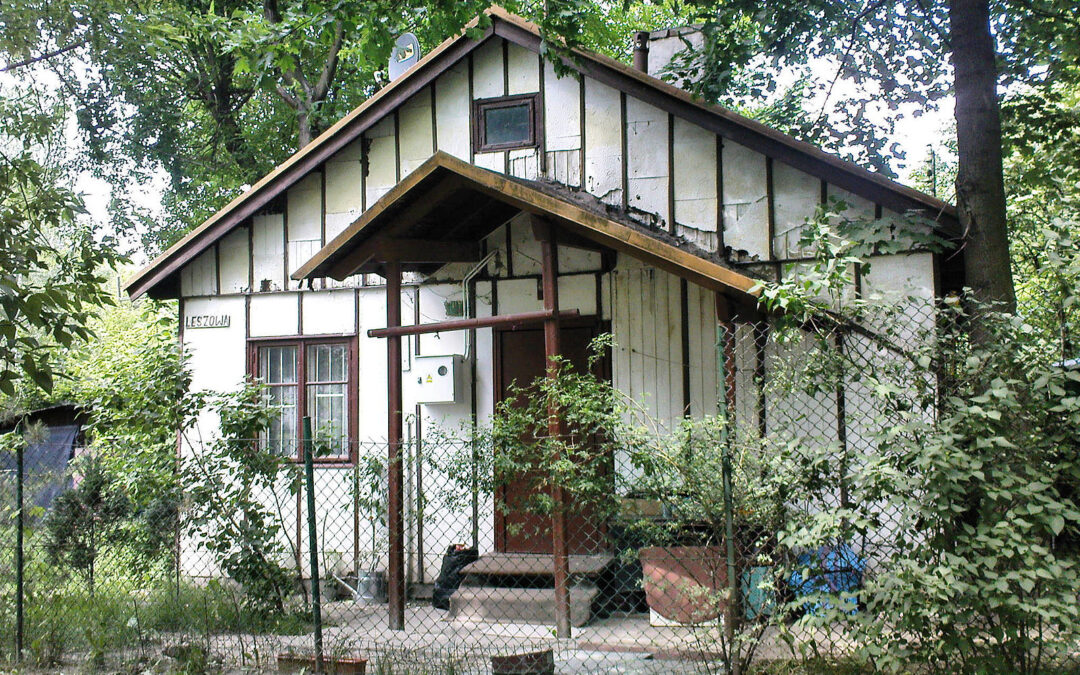The childhood home of Ryszard Kapuściński, the internationally renowned late Polish journalist and author, will be revitalised and turned into a centre of reportage, the style of writing for which he was best known.
Located in the Pole Mokotowskie park in central Warsaw, the wooden hut was home to Kapuściński’s family between 1946 and 1955. It is one of two remaining dwellings there known as “Finnish houses”, hundreds of which were donated to Poland by the Soviet Union after the war.
Kapuściński moved into the house at number 14, living with his parents and sister until the age of 23. In later work, the reporter described the wooden hut as a “luxury” and “happiness” for his four-person family, despite it having no bathroom or central heating.
Na koniec tygodnia dobra informacja – w domkach fińskich na Polu Mokotowskim w @warszawa powstanie centrum reportażu. Miejsce jest nieprzypadkowe – w jednym z nich po wojnie mieszkał Ryszard Kapuściński – postać nietuzinkowa, wybitny reportażysta, pisarz i publicysta! Działamy! pic.twitter.com/vU4NqbmXrR
— Rafał Trzaskowski (@trzaskowski_) May 16, 2021
A number of other such wooden houses, including the best-known collection in the central Jazdów area, are registered heritage sites. Renovation of the former Kapuściński home, which has fallen into disrepair, and its twin wooden hut is expected to cost around 2 million zloty (€442,000).
The new reportage centre established there will serve as a meeting place for authors and will offer international programmes for writers, according to Warsaw city council. It will feature a communal garden and an outdoor stage.
The non-fiction genre of reportage, created by combining factual snippets into an enticing narrative, is considered a Polish literary speciality.
Kapuściński’s books won international acclaim and awards, and saw him regularly mentioned as a candidate for the Nobel Prize in Literature. But they also provoked much debate about the limits of artistic freedom in factual reporting.
During the communist era, Kapuściński served as the Polish Press Agency’s (PAP) correspondent in Africa, Latin America and Asia, covering a number of revolutions, wars and coups. He died in 2007 at the age of 74.
Among his best-known works are The Soccer War (1978), about a conflict between El Salvador and Honduras, and Imperium (1993), based on Kapuściński’s travels across the collapsing Soviet Union.
The project to revitalise his former home is supported by Kapuściński’s widow, Alicja, as well as his daughter, Rene Maisner. “As heirs, we would like to express our warm and enthusiastic support for the initiative,” they wrote in a joint statement.
#BooksThatMakeYou get to know more & understand better: 8 excellent reportage books from #Poland: https://t.co/MJs86oqSPV pic.twitter.com/ul1fIkyaEw
— Culture.pl (@culture_pl) January 13, 2017
Main image credit: Jolanta Dyr/Wikimedia Commons (under CC BY-SA 3.0)

Maria Wilczek is deputy editor of Notes from Poland. She is a regular writer for The Times, The Economist and Al Jazeera English, and has also featured in Foreign Policy, Politico Europe, The Spectator and Gazeta Wyborcza.




















